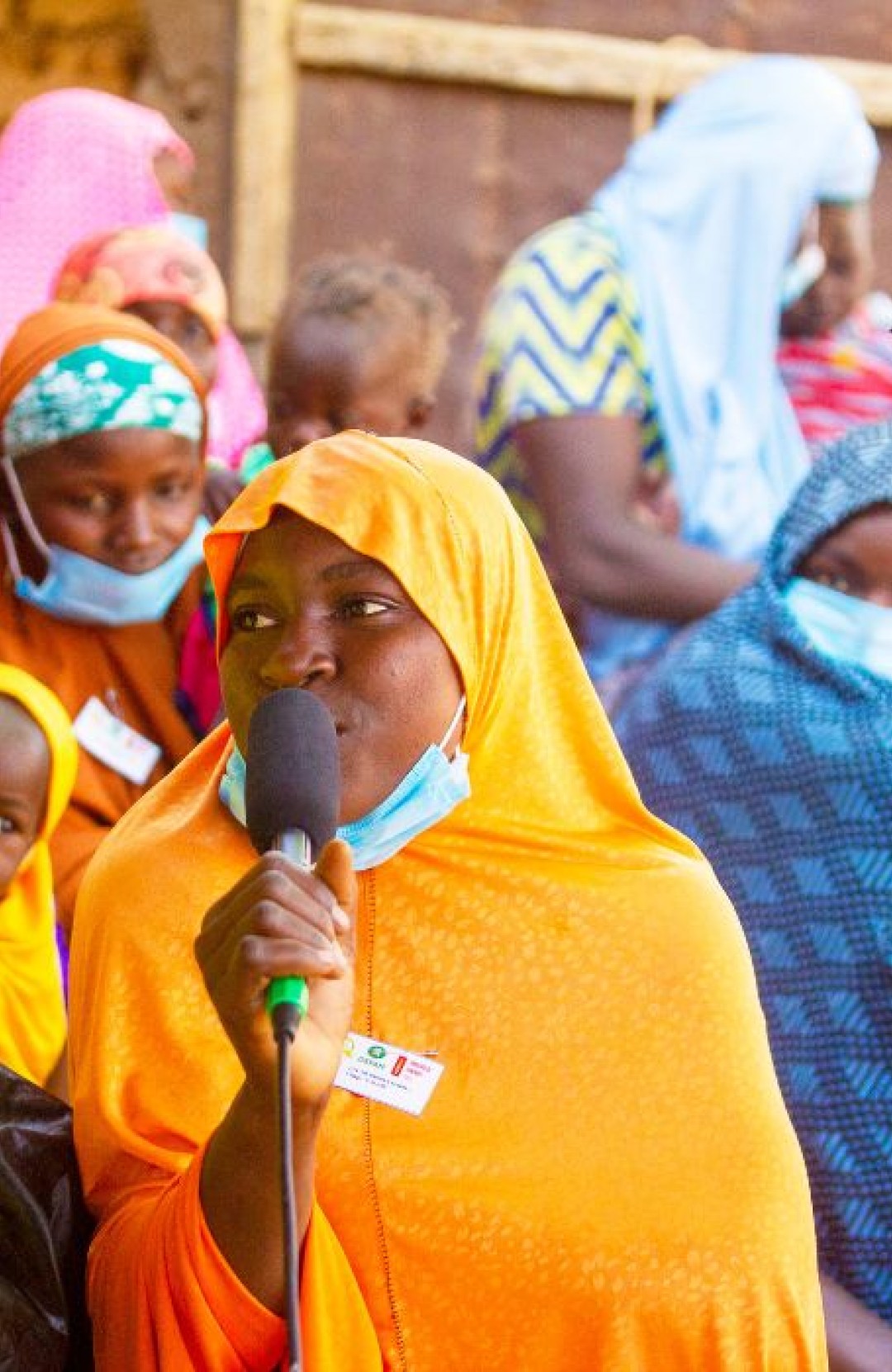
Our work in Niger
We work to promote social and economic equality in Niger by supporting the rights of women, girls and young people to have equal access to resources and empowerment in their municipality and community.
17,000 students
(43% girls) receive free quality education with a focus on equality and gender.
300 young women
have graduated from vocational training and created a business.
10 municipalities
have invested in public education and vocational training for young people.
Oxfam Denmark in Niger
In Niger, the population is under pressure on multiple fronts. The country is weakened by conflict, climate change, inadequate justice systems and lack of access to education and health, especially for women, girls, refugees, and internally displaced people.
At the same time, it is difficult for young men and women to get a job so they can build a future for themselves and become active citizens who can fight for their rights.
That's why we work to ensure quality education for girls, women, and youth in line with national education policies and SDGs 4, 5 and 16. We do this together with our partners by strengthening the control of public funding for the education sector through the involvement of citizens themselves.
In addition, we support young women and men to get the technical and vocational training that will enable them to get a job and create a better future for themselves.
This will empower local communities to create change, take leadership and engage in peacebuilding and conflict mediation through dialogue and reconciliation in the management of the country's natural resources.
In addition, we support with humanitarian efforts during food crises, distributing cash and food to vulnerable families and children, as well as raising awareness on malnutrition prevention.
Fights for women's rights
Kadiatou fights for women's rights and against traditions that limit their emancipation. According to her, education is the key against the violence that the country suffers. For this reason, she conducts awareness-raising activities in rural areas, using participatory theatre in particular.
“ Educating a girl is educating the whole community! As a child I saw women suffer in silence, but I did not accept to keep quiet. My family saw me as a rebel. It was very hard, especially with my parents. I was ready to make all kinds of sacrifices, but by dint of perseverance, they finally accepted. Now they are proud of me. ”
Goals for Oxfam Denmark’s work in Niger
- Strengthen the mobilization of national and local public resources so that it is clear how municipal budgets are managed to increase access to quality education and sustainable local development for all.
- Strengthen and improve education for girls, youth, and women, increase their active citizenship and ensure they stay in school.
- To support youth and women living in fragile situations and communities to lead and participate in decision-making processes related to conflict management.
- To strengthen the resilience of young people and women to climate change through education, solutions, sustainable and green models, and to support their fight for climate justice by influencing climate policies.
Facts about Niger:
- Niger is a country in West Africa and is approximately thirty times the size of Denmark. Its current population is 26 million people.
- In rural areas, the primary school completion rate is 57%. The literacy rate among adults over the age of 15 is 35%.
- Niger is experiencing a security crisis in the border areas with Nigeria, Burkina Faso and Mali, where armed groups have carried out attacks on security forces and civilians.
- There is an increase in societal conflicts and disruptions to social cohesion due to the scarcity of natural resources, exacerbated by climate change, which primarily leads to a reduction in fertile land.
- Although rich in culture, arts and crafts, ethnic variations and traditions, Niger is one of the poorest countries in the world. The country mainly exports gold, uranium, petroleum products, palm oil and food.